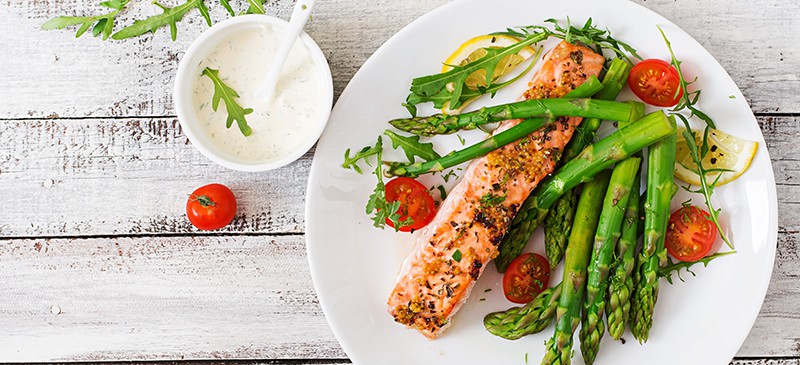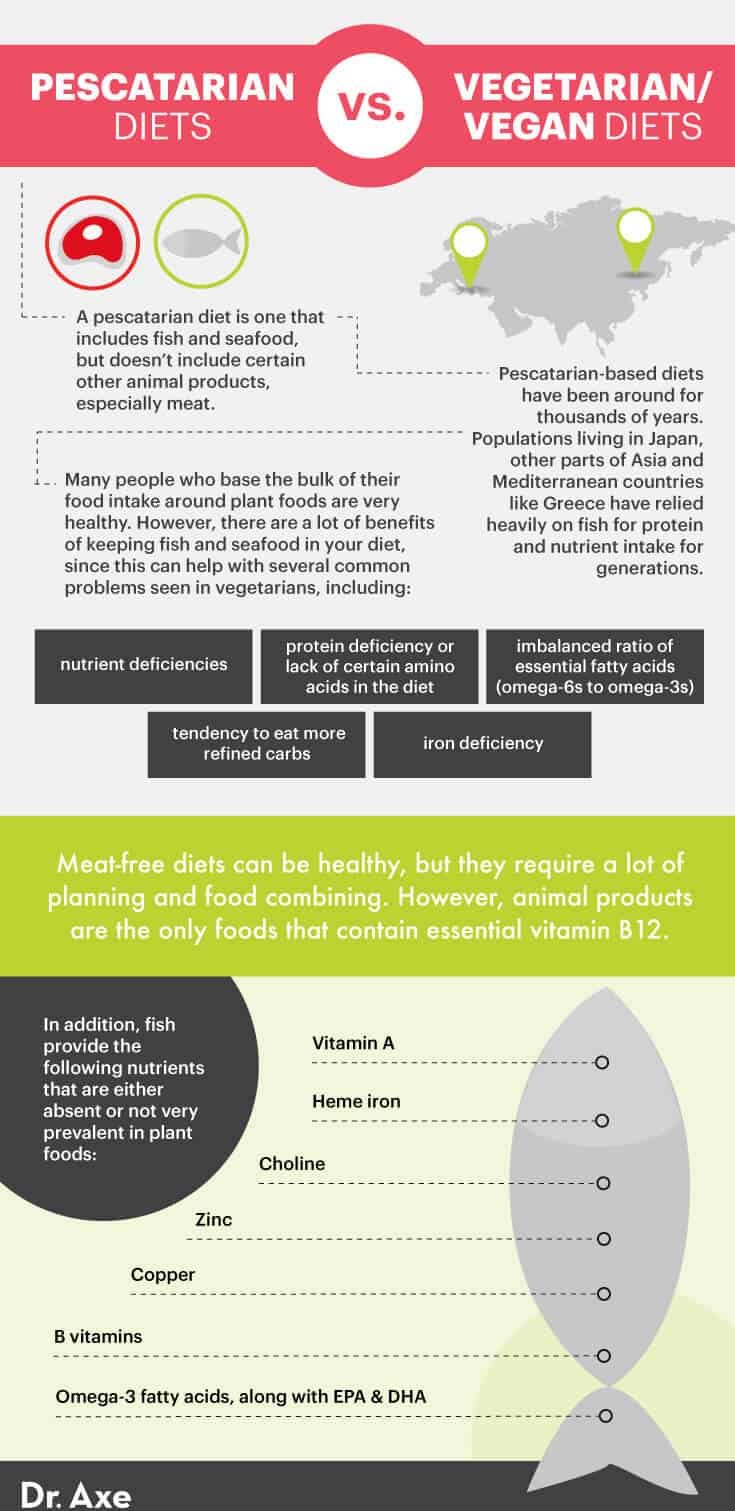This Dr. Axe content is medically reviewed or fact checked to ensure factually accurate information.
With strict editorial sourcing guidelines, we only link to academic research institutions, reputable media sites and, when research is available, medically peer-reviewed studies. Note that the numbers in parentheses (1, 2, etc.) are clickable links to these studies.
The information in our articles is NOT intended to replace a one-on-one relationship with a qualified health care professional and is not intended as medical advice.
This article is based on scientific evidence, written by experts and fact checked by our trained editorial staff. Note that the numbers in parentheses (1, 2, etc.) are clickable links to medically peer-reviewed studies.
Our team includes licensed nutritionists and dietitians, certified health education specialists, as well as certified strength and conditioning specialists, personal trainers and corrective exercise specialists. Our team aims to be not only thorough with its research, but also objective and unbiased.
The information in our articles is NOT intended to replace a one-on-one relationship with a qualified health care professional and is not intended as medical advice.
Pescatarian Diet Benefits for Heart and Brain Health
October 30, 2023

Although the term “pescatarian” only originated within the last few decades, pescatarian diets have actually been around for centuries. Favored for both its health and environmental benefits, the pescatarian diet is often credited with improvements in mood, brain function, heart health and weight loss. Plus, it can also provide a wealth of important micronutrients, many of which may be lacking from some vegetarian or vegan diets.
So, is pescatarian healthy? Can you lose weight eating pescatarian? And what exactly does a pescatarian diet include? Let’s break down these questions one-by-one and take a closer look at the pescatarian diet.
What Is a Pescatarian?
According to Merriam-Webster, the official pescatarian definition is “one whose diet includes fish but no other meat.” However, there are literally dozens of different styles of meatless diets, so each person’s personal pescatarian preferences can be different.
Pescatarian-based diets have been around for thousands of years. Populations living in Japan, other parts of Asia and Mediterranean countries like Greece have also relied heavily on fish for protein and nutrient intake for generations.
While some people opt for a pescatarian diet out of personal preference, environmental concerns or ethical reasons, others decide to keep fish and seafood in their diet for their health. In fact, there are several benefits of keeping fish and seafood in your diet, and it can help with several common problems seen in vegetarians, such as:
- nutrient deficiencies (such as vitamin B-12 deficiency)
- protein deficiency, or lack of certain amino acids in the diet
- imbalanced ratio of essential fatty acids (omega-6s to omega-3s)
- the tendency to eat more refined carbohydrates
- iron deficiency
Types
Just as there are a number of different types of vegetarian diets, there are also several different pescatarian meal plan types available as well. A traditional pesco vegetarian diet eliminates meat and poultry but permits the consumption of fish, seafood, eggs and dairy products.
However, some seafood diet variations may exclude eggs, dairy products or both. Meanwhile, other variations, such as the “pollo pescatarian diet” allow fish and poultry, but not red meat or pork. Because there’s no “one size fits all” pescatarian diet, it’s easy to find a variation that works for you to give it a try.
Health Benefits
1. Provides Omega-3 Fatty Acids
One of the primary reasons fish is so good for us is because of its high levels of omega-3 fatty acids. In a world where most people consume far too many omega-6s from refined vegetable oils, salad dressings and processed condiments, an increase in omega-3 foods is much needed.
Omega-3s act as a counterbalance against omega-6 fats, helping to keep inflammation low by balancing levels of omega-3 and omega-6 fatty acids. Omega-3 fatty acids are considered anti-inflammatory, while omega-6s are pro-inflammatory. We need both types, but many people are lacking in omega-3s. Consuming higher levels of omega-3s has been associated with better mental health, lower triglyceride levels, improved reproductive health and fertility, better hormone control and a lower risk for diabetes.
2. Helps Lower Inflammation
The reason that the omega-3s found in fish are so valuable mostly comes down to their ability to fight inflammation. They help control inflammatory conditions that lead to numerous diseases, including cancer, rheumatoid arthritis and asthma.
Both types of polyunsaturated fats described above play an important role in the body, helping to form our hormones, cell membranes and immune responses. But omega-3 and omega-6 fatty acids have opposite effects when it comes to inflammation.
Generally speaking, too much omega-6 and too little omega-3 causes inflammation. Inflammation is thought to contribute to the development of chronic conditions such as cancer, diabetes, heart disease and more.
3. Promotes Heart Health
EPA and DHA are two omega-3 fatty acids that are essential for controlling inflammation and promoting heart health. Studies show that daily consumption of EPA and DHA may help reduce heart disease risk and deaths from heart disease, sometimes just as effectively as prescription medications like statins.
The combination of nutrients found in seafood also helps regulate heartbeats, reduce blood pressure and cholesterol levels, decrease blood clot formation and lower triglycerides, all of which can help protect against heart disease and stroke.
4. May Help Protect Against Cancer
Research shows that consuming more fish and seafood high in omega-3s benefits the immune system and helps fight cancer by suppressing inflammation. In fact, while vegetarian diets are linked to a lower incidence of certain cancers (like colon cancer), pescatarianism is actually associated with an even lower risk compared to vegetarians and non-vegetarians alike, according to some studies.
Several studies also suggest that consuming plenty of omega-3 fatty acids can help those who have already been diagnosed with cancer by stalling tumor growth. Following a pescatarian lifestyle high in omega-3s can also help people undergoing chemotherapy or other cancer treatments since they help preserve muscle mass and regulate inflammatory responses, which are already compromised in those with cancer.
5. Fights Cognitive Decline
Omega-3s like DHA are essential for the proper development of the brain and preservation of cognitive function as we get older. Many studies have found that low omega-3 levels in the elderly are associated with multiple markers of impaired brain function, including dementia or Alzheimer’s disease. Lower levels of omega-3s during pregnancy are even associated with children having lower memory test scores and learning difficulties.
6. Boosts Mood
Because they fight oxidative stress that impairs proper brain functioning, the omega-3s from fish and seafood are associated with better mental health and a lower risk for dementia, depression, anxiety and ADHD. That means that pescatarian foods can also be considered brain moods to boost focus and memory.
7. Supports Weight Loss
Many people have started using the pescatarian diet for weight loss, and for good reason. Low intakes of omega-3s have been tied to obesity and weight gain. Studies also show that people who eat more plant foods (including vegetarians) tend to have lower BMIs and better weight control, likely because they eat more fiber and less calories.
Not only that, but healthy proteins and fats are crucial for feeling full, and many of the nutrients found in fish can help reduce cravings. No matter your diet, aim for a high intake of fruits, vegetables, quality proteins, healthy fats, seeds, nuts, fiber and phytochemicals — all of which can help you lose weight fast and keep it off.
Drawbacks
Like all types of diets — from pescatarian, to keto and beyond — restricting certain food groups can lead to issues.
1. Feeling Deprived or Bored
It’s possible to start feeling deprived or even bored when consuming only pescatarian meals because meat and most animal products become “off limits.”
2. Not Reaching Protein Goals
Aiming to eat enough fish, eggs, dairy and plant foods each day in order to obtain enough protein can be challenging — potentially leading to an increased intake of carbohydrates instead. This poses its own risks for potential weight gain, protein deficiency, fatigue and other health problems.
3. Excessive Mercury Intake
Another thing to consider when following a pescatarian diet is your intake of mercury. Mercury is, in fact, toxic, but its toxic effects are somewhat mitigated by the mineral selenium, which is present in nearly all wild-caught seafood.
However, considering the level of toxins found in today’s oceans, mercury toxicity is a real concern, so it’s best to also focus on eating smaller fish and limit your consumption of high-mercury fish, such as king mackerel, tilefish, swordfish and shark.
Meal Plan Tips
Adding variety to your diet and planning out your meals can be a useful tool to ensure success on the pescatarian diet.
Craft a well-rounded, balanced pescatarian breakfast, lunch and dinner each day to help you fit a wide array of fruits, veggies, healthy fats and protein foods into your diet and squeeze plenty of nutrients into your day.
Practice pescatarian meal prep and experimenting with different pescatarian recipes can also maximize the nutritional value of your diet.
Learn about the best fish to eat (such as cod, mackerel and sardines) versus fish to avoid (such as tilapia, farmed salmon and swai fish).
Try pescatarian recipes like blackened salmon with creamy avocado dressing and tuna pasta salad with Kalamata olives. Also, simply grill wild-caught fish and accompany it with a vegan side dish.
Pescatarian vs. Vegetarian vs. Vegan
Pescatarian, vegetarian and vegan diets have all been linked to a number of powerful health benefits, including a lower risk of heart disease, cancer, diabetes and more. However, there are several differences between the three diets that should be carefully considered when deciding which one is right for you.
The main difference between a pescatarian vs vegetarian diet is that pescatarian diets may include fish and seafood from time to time. A plant-based diet also permits some fish, though a small percentage of the overall dietary intake.
Adding these foods to your diet can help supply a number of important vitamins and minerals, many of which are difficult to obtain from plant foods alone. Wild-caught salmon, for example, contains a good amount of omega-3 fatty acids, vitamin B12 and protein, all of which are absolutely essential to overall health.
Vegan diets, on the other hand, are even more restrictive than vegetarian diets and eliminate several foods that are permitted on the pescatarian diet plan. In addition to excluding meat, poultry and fish, animal products like dairy, eggs and honey are also not consumed on a vegan diet.
You may be wondering: Is pescatarian healthier than vegan? And is it healthier than a vegetarian diet? Regardless of whether you follow a lacto ovo pescatarian diet, a vegetarian diet or vegan diet, it’s important to plan out your meals properly to ensure you’re getting the nutrients you need. It may be easier to meet your nutritional needs by including seafood in your diet, but it’s also still possible to get the vitamins and minerals your body needs on a vegan or vegetarian diet by eating a balanced variety of foods and using supplements (such as vegan omega-3s) or fortified ingredients as necessary.

Final Thoughts
- The pescatarian diet is a type of diet that typically includes fish and seafood but excludes meat or poultry.
- There are numerous variations for the pescatarian diet. Some may include poultry, while others may restrict other animal products, like eggs, dairy or honey.
- In addition to the potential ethical and environmental benefits of the pescatarian diet, there are several health benefits associated with the diet as well.
- Some of the pescatarian benefits include reduced inflammation, improved heart health, enhanced cognitive function, increased weight loss, improved mood and a lower risk of cancer.
- However, it’s important to plan your diet carefully and steer clear of high-mercury varieties of fish to ensure you’re meeting your nutritional needs and prevent adverse side effects.










